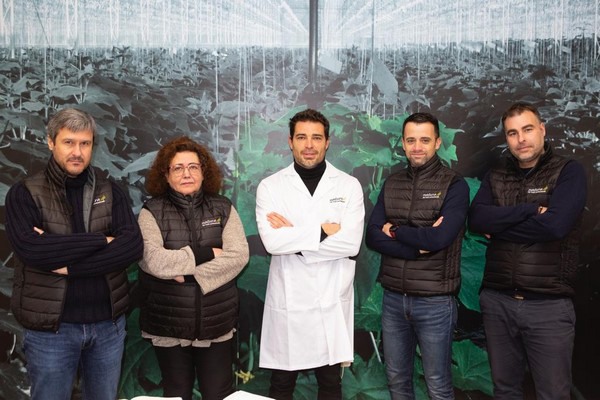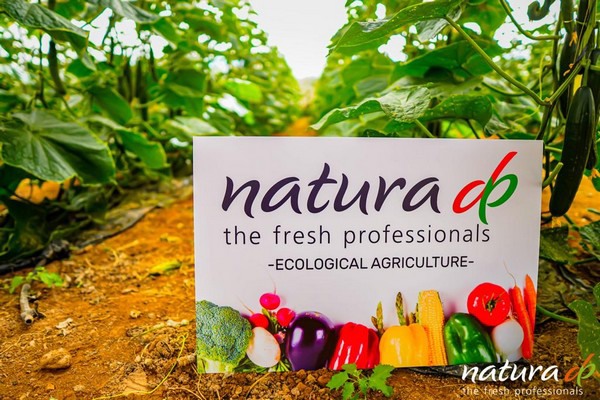The bell pepper campaign has come to an end in the province of Almeria. As already reported by the Prices and Markets Observatory of the Government of Andalusia in week 16, the entry into production of Murcia and the Netherlands has directed international buyers mostly to these markets, so the plantations in Almeria oriented towards exporting are reaching the end of their cycle. Such is also the case of Natura DP.
"In many of our plots, the land is already being cleared to prepare it to sow bell peppers again from June, and in those where watermelons have been planted, bell peppers will be planted again in July. That way, the area of El Ejido will have something to harvest again in October," says Francis Martos of Natura DP. "However, in Berja, one of our growers will have bell peppers as early as August 18-20."

"The export season is over, but we continue to export our main products, like the tomatoes on the vine, with which we achieve 12-month cycles together with our partner in the Netherlands, Frankort & Koning."
This season in particular has come to a close in Almeria with significantly higher prices than last season, a consequence of the pressure that the supply has been under in a season "which has been challenging at the production level," says Francis. "It started with very high temperatures in autumn and winter, which led to the crops going through stages of virosis, but in the Poniente area, we have done a good job trying to anticipate the problems by implementing the necessary means to minimize them. It is true that there have been smaller volumes, but also very high prices, so our campaign has been saved to some extent. In the most recent price statistics we were provided, bell peppers cost 1-1.05 Euro per kilo at origin; a good price, although we cannot forget that there have been times when yellow bell peppers have been purchased for almost 4 Euro per kilo."
"Products such as cucumber have gone through a similar situation: there has been a lot of demand and few kilos, and prices have remained high. Besides, consumption of other types of bell pepper, such as Italian pepper, is on the rise in the markets of Northern Europe and Scandinavia."
In recent years, Natura DP has focused on organic production, a segment that is becoming increasingly consolidated, as evidenced by the growth in sales recorded by the company this season. "Of course, if we receive orders for conventional products, we will not give up serving our customers, but all the efforts we are making at the technical level, in certifications and when advising farmers, are focused on the organic segment. In fact, this is our strategy for the future; we want to be specialists in organic production in the European export market."

"At the moment, most of the demand for Almeria's melons comes from Germany and the Netherlands"
While the vegetable campaigns are coming to a close, those of summer fruits are kicking off in the greenhouses of Almeria. Both watermelons and melons are recording some interesting prices from the beginning, and everything points to them possibly staying like that for a few more weeks.
"Right now, we have some Cantaloupe and Galia melons. There is currently some demand but little supply. In previous years, we've dealt with some unusual weather conditions and, together with the lack of water, this led to some growers wanting to avoid taking risks." These are also products whose consumption is highly temperature-dependent, which is an added risk for producers. "At the moment, most of the demand comes from Germany and the Netherlands, where we are shipping our fruit," says Francis.
 For more information:
For more information:
Natura DP
Calle Amsterdam, n 16, La Redonda
Almeria, Spain
Tel.: +34 950 487 791
https://naturadirectproduce.com
